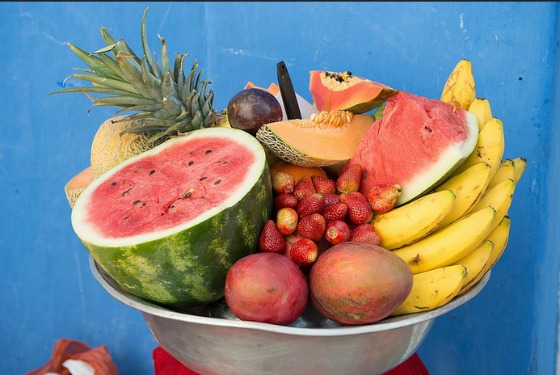
Is Good Food a Privilege? Why It Should Be A Right
Is it possible that I’m writing about food again? I think it’s impossible for me to not write about food. Food is at the core of everything that makes us human, beyond simple survival (and including survival). Food is social and food is political. Food is aesthetic, and it is art.
Through food, we express our appetites as well as our principles. Our food choices are global. We can choose to purchase mindfully, to source our ingredients with care, to support small businesses. And we should choose wisely.
Tragically, this choice is a privilege to which not everyone has access. For many people, food options are simply not available. This is why I will never be one of those vegans who says “Just go vegan! It’s easy!” because for so many people it is not. Food, especially fresh produce, is not always affordable, especially on a fixed income. Government assistance programs like SNAP (Supplemental Nutrition Assistance Program) can provide some assistance, but that can only stretch so far.
I wrote a couple weeks ago about the fact that the United States Department of Agriculture was allocating $52 million towards organic farming and “regional food hubs” like farmers markets. The USDA is directing $31.5 million in grants for farmers markets specifically in order to make food more affordable for those who utilize food programs like SNAP. The grant has doubled the value of SNAP at farmers’ markets. If the SNAP user spends $10 at a farmstand, he or she will receive $20 worth of produce. The government subsidizes the farmers for the difference.
NPR quotes Senator Debbie Stabenow on the initiatives: “These new programs will not only empower low-income Americans to provide their families with more healthy fruits and vegetables, they will also help strengthen local economies by investing in local food systems and organic agriculture.”
This is all completely amazing, of course. Government is subsidizing farmers’ markets and helping poorer Americans access healthy food!
But there’s a problem:
Let’s say you are one of the more than 45 million Americans living below the poverty line. You want to eat well, and to feed your family fresh fruits and vegetables. You have applied for the SNAP program, and you are considered eligible.
You live in an urban area and have no access to a farmers’ market to take advantage of this new initiative. You may not even have access to a grocery store. The available food source for your family is a nearby convenience store, which likely does not carry fresh produce.
California is trying to solve this extremely complex problem, utilizing several legislative methods. A few weeks ago, Governor Jerry Brown signed a parcel of bills that will hopefully increase access to produce. The bill includes a measure, authored by Assemblyman John Perez, which will create a state office (Farm to Fork) with the purpose of bringing fruits and vegetables into schools and underserved communities. Perez is quoted by the Los Angeles Times as saying “nearly one million of our residents live in areas known as food deserts [and] have no ready access to fresh and affordable produce.”
I hope that new initiatives like these can help increase both the access and affordability of nutritious food. Food access should be a right, not a privilege. For those of us with this privilege, it is our responsibility to make mindful choices, and to never ever take food for granted.
I want to do more. If there are Eco-Chicks (or Eco-Dudes) out there with ideas, organizations, brainstorms, let’s hear them! Share them with us on Twitter, Facebook, or here in the comments!
Related on Eco-Chick:








